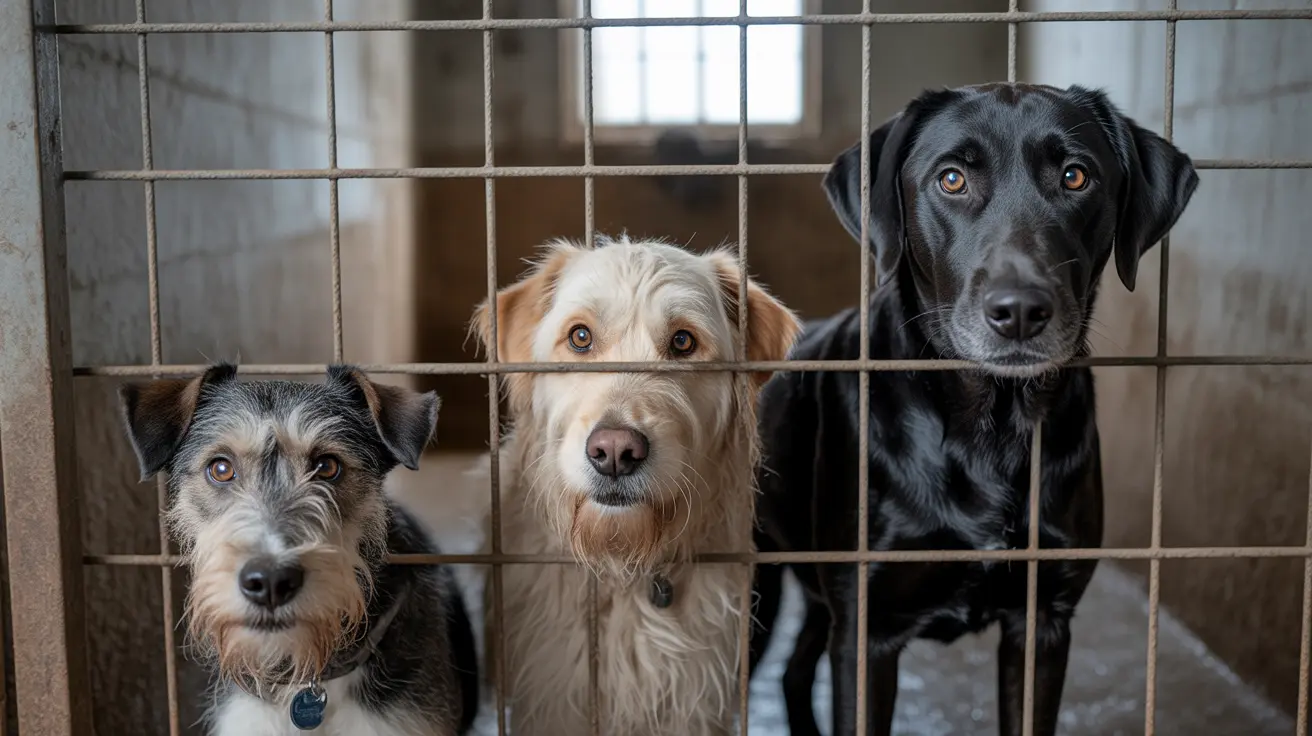The Newark animal shelter is facing a critical overcrowding crisis that may force officials to make the heartbreaking decision to euthanize healthy dogs. This devastating situation has been significantly worsened by recent economic pressures, particularly the end of enhanced SNAP benefits that previously helped families afford pet care during challenging times.
As shelter staff work around the clock to find homes for dozens of dogs, they're receiving distressing calls from pet owners who can no longer afford to care for their beloved companions. "People are calling saying, 'I don't know how much longer I can keep my pet because our SNAP program is ending. We're not getting the money we need,'" according to shelter representatives.
This crisis represents more than just numbers it reflects the difficult reality facing many pet-owning families across New Jersey who are struggling to balance their love for their animals with mounting financial pressures.
Impact of SNAP Benefits and Pet Care Costs
The connection between SNAP benefits and pet care may not be immediately obvious, but for many low-income families, these benefits provided crucial financial breathing room that indirectly supported pet ownership. When families could better afford their own food costs, they had more resources available for pet food, veterinary care, and other animal-related expenses.
Pet food price increases in 2025 have compounded these challenges, making it even more difficult for struggling families to provide adequate nutrition for their animals. The rising cost of veterinary care, combined with reduced household budgets, creates an impossible situation for many pet owners who deeply love their animals but cannot meet their basic needs.
Housing Restrictions and Pet Ownership Challenges
Beyond financial constraints, housing restrictions significantly impact pet ownership decisions in urban areas like Newark. Many rental properties prohibit pets or require substantial deposits and monthly fees that cash-strapped families cannot afford. When families face housing instability, they often must choose between keeping a roof over their heads and keeping their cherished pets.
These combined pressures create a perfect storm that drives well-meaning pet owners to surrender their animals, not out of lack of love, but out of desperation and limited options.
How Communities Can Help Overcrowded Animal Shelters
While the situation is dire, there are several ways community members can help reduce the risk of shelter euthanasia and support both the animals and families in need:
Dog adoption represents the most direct way to help. Every successful adoption creates space for another animal in need and potentially saves two lives the adopted dog and the one who takes its place at the shelter.
Foster programs provide temporary relief by giving dogs loving homes while they await permanent placement. Fostering is especially valuable for shelters dealing with space constraints, as it allows more animals to receive care without straining facility resources.
Affordable pet care assistance programs in the community can help families keep their pets by providing low-cost veterinary services, pet food banks, and emergency financial assistance for pet-related expenses.
Emergency Dog Adoption and Foster Opportunities
Newark area shelters are actively seeking emergency adopters and foster families to help address the immediate crisis. These programs often provide necessary supplies and support to ensure successful placements, making it easier for families to welcome a new pet into their homes.
Potential adopters should be prepared for the possibility that some shelter dogs may need extra patience and training as they adjust to new environments, especially if they've experienced stress from overcrowded conditions.
Frequently Asked Questions
Why is the Newark animal shelter overcrowded, and how does this affect dogs there?
The Newark animal shelter is experiencing overcrowding due to increased pet surrenders, primarily driven by families facing financial hardship following the end of enhanced SNAP benefits. This overcrowding creates stressful conditions for the animals and may force the shelter to euthanize healthy dogs due to lack of space and resources.
How has the end of enhanced SNAP benefits contributed to more pet surrenders in Newark?
When enhanced SNAP benefits ended, many families lost crucial financial support that indirectly helped them afford pet care expenses. With reduced household budgets, families struggle to cover pet food costs, veterinary bills, and other animal-related expenses, leading them to surrender pets they can no longer afford to care for properly.
What can pet owners do if they're struggling financially but want to keep their pets?
Pet owners facing financial difficulties should research local pet food banks, low-cost veterinary clinics, and emergency assistance programs in their area. Many communities offer resources specifically designed to help families keep their pets during temporary financial hardships rather than surrendering them to shelters.
How can adopting or fostering a dog from an overcrowded shelter help reduce euthanasia risks?
Every adoption or foster placement creates immediate space in the shelter, allowing them to accept another animal in need. This directly reduces the pressure that leads to euthanasia decisions and gives more dogs the chance to find loving homes while waiting for permanent families.
The Newark animal shelter crisis serves as a stark reminder of how economic pressures affect not just human families, but their beloved pets as well. Through community support, increased adoptions, and targeted assistance programs, it's possible to help both the animals facing uncertain futures and the families who desperately want to keep them.






